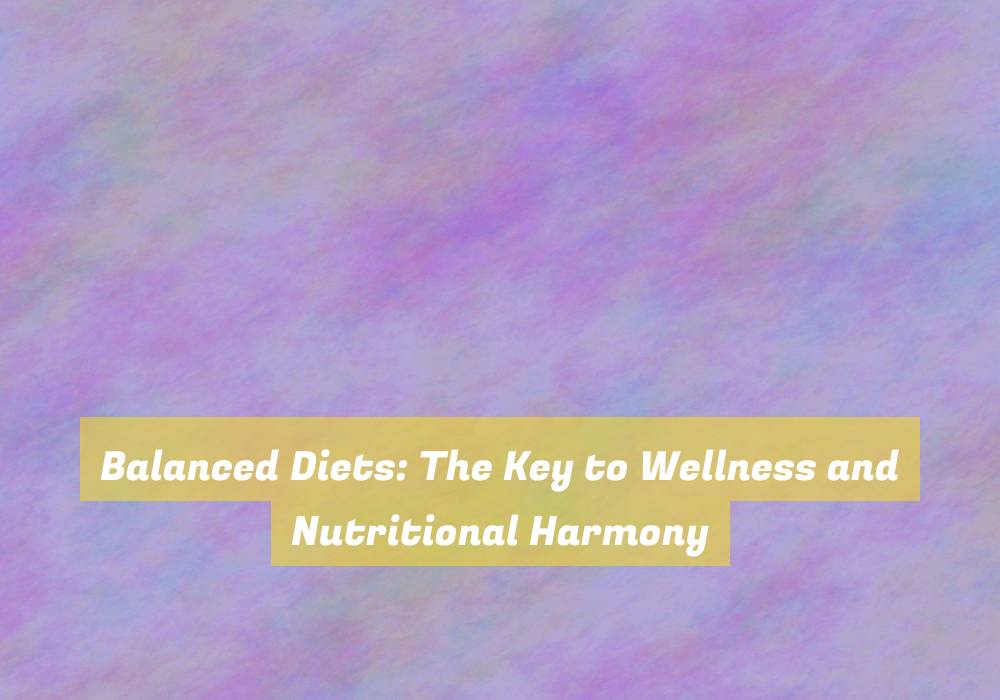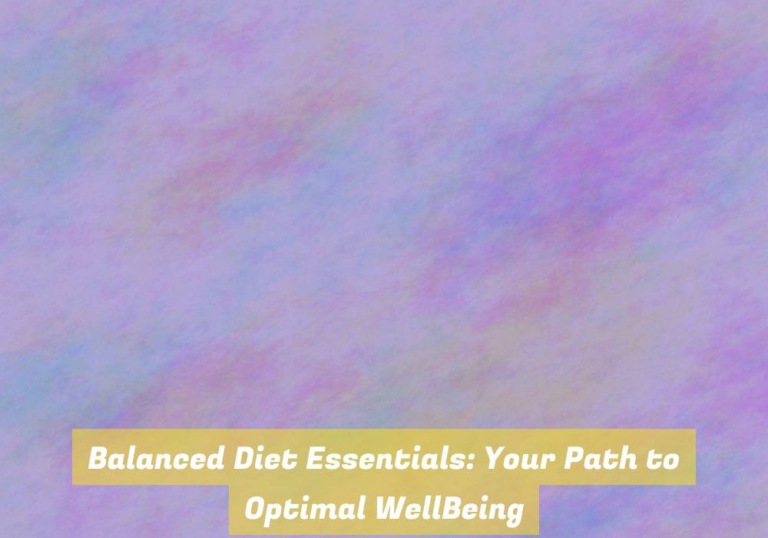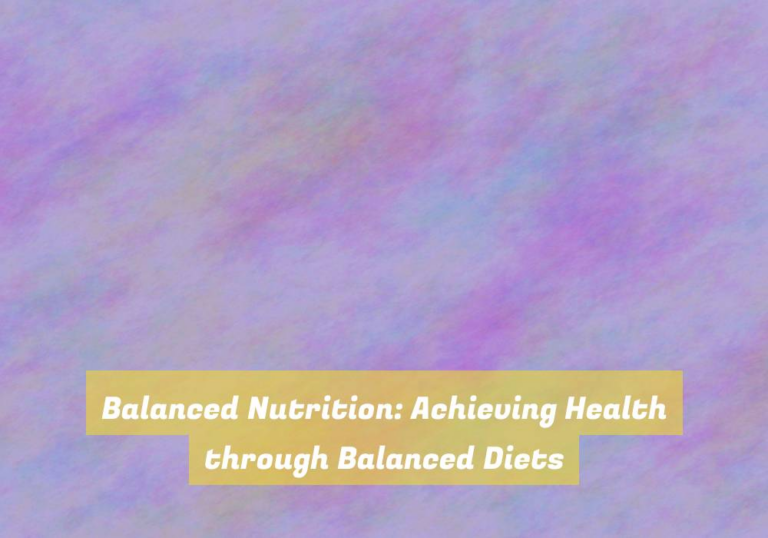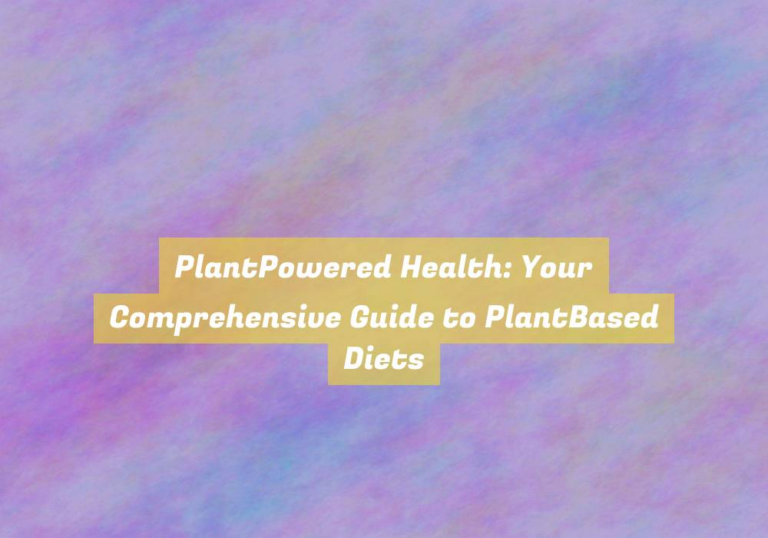Balanced Diets: The Key to Wellness and Nutritional Harmony
Do you know that according to the World Health Organization, inadequate intake of essential nutrients is a global concern, with over 2 billion people suffering from micronutrient deficiencies?
Maintaining a balanced diet is not just a matter of calorie intake, but a crucial factor in achieving overall wellness and nutritional harmony.
As you navigate through the complexities of modern dietary choices, understanding the significance of balanced diets can lead to a healthier and more fulfilling lifestyle.
Importance of Balanced Diets
Achieving wellness and nutritional harmony through balanced diets is essential for maintaining a healthy body and mind. A balanced diet provides the necessary nutrients, vitamins, and minerals that your body needs to function optimally. It helps in maintaining a healthy weight, reducing the risk of chronic diseases such as diabetes, heart disease, and certain cancers. Additionally, a balanced diet supports your immune system, enabling your body to effectively fight off illnesses and infections. It also contributes to better digestion and gut health, promoting overall well-being.
Furthermore, balanced diets play a crucial role in supporting mental health. Nutrient-rich foods can positively impact your mood and energy levels, reducing the risk of mood disorders such as depression and anxiety. They also support cognitive function, enhancing your ability to focus, learn, and retain information.
Essential Nutrients for Wellness
For optimal wellness, your body relies on essential nutrients obtained through a balanced diet, ensuring proper functioning and overall health. Essential nutrients encompass a range of vitamins, minerals, proteins, fats, and carbohydrates that your body requires for various physiological processes. These nutrients play crucial roles in supporting your immune system, maintaining organ function, promoting healthy skin and hair, and facilitating energy production.
Vitamins, such as A, C, D, E, and K, are vital for immune function, vision, skin health, and blood clotting. Meanwhile, minerals like calcium, potassium, magnesium, and iron are essential for bone strength, muscle function, and oxygen transport. Proteins are the building blocks of tissues, hormones, enzymes, and antibodies, contributing to muscle growth and repair. Healthy fats provide energy, support cell growth, and aid in nutrient absorption. Carbohydrates serve as the bodyG??s primary energy source, fueling brain function and physical activity.
Balancing these nutrients through a diverse and nutritious diet is key to promoting overall wellness, preventing deficiencies, and supporting your bodyG??s optimal performance. ItG??s important to prioritize a well-rounded diet that incorporates a variety of nutrient-dense foods to meet your bodyG??s essential nutritional needs.
Practical Tips for Nutritional Equilibrium
Maintain nutritional equilibrium by incorporating a variety of nutrient-dense foods into your daily meals. Start by including a colorful array of fruits and vegetables, which are packed with essential vitamins, minerals, and antioxidants. Aim to fill half your plate with these natural, unprocessed foods at each meal.
Additionally, prioritize lean sources of protein such as poultry, fish, beans, and nuts. These foods provide the building blocks for muscle, tissues, and enzymes vital for overall health.
Whole grains like quinoa, brown rice, and oats are excellent sources of fiber, B vitamins, and minerals, contributing to sustained energy levels and digestive health.
Furthermore, donG??t overlook healthy fats found in avocados, olive oil, and fatty fish. These fats support brain function, promote heart health, and aid in the absorption of fat-soluble vitamins.
To round out your balanced diet, include dairy or dairy alternatives for calcium and vitamin D, crucial for bone strength.
Incorporating these diverse, nutrient-rich foods will help you achieve nutritional equilibrium, ensuring that your body receives the essential components it needs for optimal wellness.
Balancing Diets in Modern Lifestyles
Balanced diets play a crucial role in modern lifestyles, as they help you navigate the challenges of busy schedules and processed food options while prioritizing your nutritional needs. In todayG??s fast-paced world, itG??s easy to fall into the trap of convenience foods that are often high in unhealthy fats, sugars, and sodium. However, with a conscious effort to balance your diet, you can make healthier choices that support your overall well-being.
One way to balance your diet in a modern lifestyle is by meal prepping. This allows you to have nutritious and balanced meals ready to go, minimizing the temptation to opt for fast food or unhealthy snacks. Additionally, incorporating a variety of fruits, vegetables, whole grains, lean proteins, and healthy fats into your meals can help ensure that youG??re getting a wide range of essential nutrients.
Furthermore, being mindful of portion sizes and listening to your bodyG??s hunger and fullness cues can also contribute to a balanced diet. By paying attention to what and how much youG??re eating, you can better manage your calorie intake and maintain a healthy weight. Making small, sustainable changes in your eating habits can go a long way in achieving nutritional harmony in todayG??s modern lifestyle.
Conclusion
So, remember to prioritize a balanced diet in your daily choices. ItG??s the key to overall wellness and nutritional harmony. By including essential nutrients and making practical adjustments, you can achieve a healthy equilibrium.
Even in todayG??s fast-paced world, itG??s possible to maintain a balanced diet and reap the benefits of a well-nourished body and mind. Keep making those smart food choices and enjoy the rewards of a balanced and healthy lifestyle!







